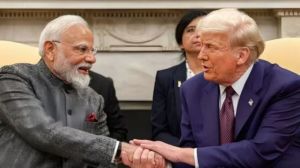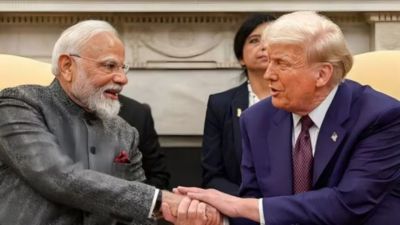Stay updated with the latest - Click here to follow us on Instagram
No case in 3 yrs, India is polio free
The last polio case was reported on January 13, 2011 from Howrah in West Bengal.
 The last polio case was reported on January 13, 2011 from Howrah in West Bengal.
The last polio case was reported on January 13, 2011 from Howrah in West Bengal.PTI
India on Monday completed three consecutive years without a single wild polio case being reported from any part of the country, thereby achieving the three-year milestone necessary to achieve polio-free certification from World Health Organisation.
The last polio case was reported on January 13, 2011 from Howrah in West Bengal.
The official announcement of India becoming a polio free country will be made on February 11.
“It is a matter of pride for the nation that not a single case of polio has been detected in the three years. This monumental milestone was made possible due to unwavering political will at the highest levels, commitment of adequate financial resources, technological innovations like the bivalent vaccine and tireless efforts of millions of workers, including more than 23 lakh vaccinators and volunteers, and more than 1.5 lakh supervisors,” Union Health Minister Ghulam Nabi Azad said in Delhi.
“India accounted for half of all the cases of polio reported globally in 2009. Within four and half years, we have been able to eradicate the crippling disease,” Azad added.
Commemorating the day, Rotary International lit up iconic monuments and buildings across the nation. In Delhi, the historic India Gate and Red Fort was lit up with the message — “Celebrating 3 Years of last Polio case in India”. Other monuments and buildings illuminated included the Air India building in Mumbai, Hyderabad Public School in Hyderabad, Red Fort in Agra, Teeli Wali Masjid in Lucknow, Junagarh Fort in Bikaner, Sojati Gate in Jodhpur among others.
“It is a huge victory for India and its people. From being one of the most polio-infested region a couple of years ago to completely containing polio, the campaign (against polio) in India has come a long way,” said Deepak Kapur, chairperson of Rotary’s India National PolioPlus Committee.
Though no wild polio cases have been reported, vaccine-derived polio infections continue to affect the children. Prevention of acute flaccid paralysis, a vaccine-derived polio infection, poses the next challenge. Uttar Pradesh and Bihar currently report the highest number of cases of acute flaccid paralysis, several times the global incidence rate.
Azad, meanwhile, launched an indigenously developed diabetes screening kit. A product of Birla Institute of Technology, Hyderabad and IIT Mumbai, the strips cost Rs 5 — less than 20 per cent of the lowest priced strips currently available in the market.







